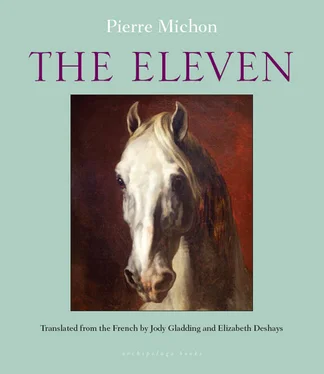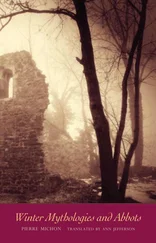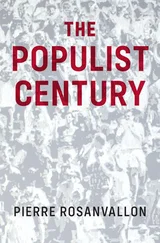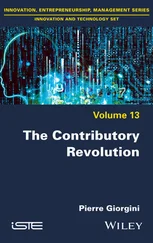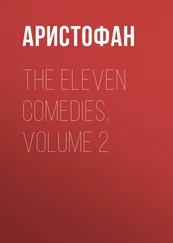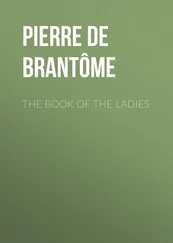“Would you execute a commission, citizen painter?”
Yes, he would — he might. He said so. He answered Proli without really looking at him, his glance shifting toward the bust of Marat, the two-cornered hats set before it like offerings, the fire, the wine. The fire was dying. Proli, prey to something more powerful than the annoyance and repulsion inspired in him by Corentin, regarded him with a cold intensity; neither Bourdon nor Collot spoke a word but regarded him with the same intense look. Corentin said (not to Proli but to the bust of Marat or to the fire) that his consent depended upon three things: if it was in his line of work, the wages, and the due date. Proli answered, his Flemish eyes losing none of their intense stupor, that so far as the delivery date was concerned, it was yesterday or tomorrow, that is, as soon as possible, days rather than weeks; from nowhere he pulled out a sack, opened it, and emptied it onto the table, a little beyond the empty plates, where the relics had been earlier: out spilled gold coins, piastres from Holland, Portuguese coins, ecus bearing the effigy of Louis, some three hundred judging from the looks of it, at a time when there was no more gold in France. Proli said that this was only the first payment for the painting, he would receive twice this amount upon delivery. Corentin thought to himself that this was nearly as much as for the large Marigny commission for the great hall at Louveciennes in the time of maman-putain , Jeanne Antoinette de Pompadour. His dark cheer increased: the wages were royal, the deadline tight, but at that time when he was painting very quickly, Corentin felt quite capable of knocking off some Fraternité or Égalité shrew in a couple of days. “And what am I to paint?” he asked. This time he looked squarely at Proli, as if Proli were a lackey. Proli looked at him the same way. In a sharp, fluty voice resembling Robespierre’s for a moment, Proli came out with it: “You know how to paint gods and heroes, citizen painter? It is an assembly of heroes that we ask of you. Paint them like gods or monsters, or even like men, if you like. Paint The Great Committee of Year II . The Committee of Public Safety. Do what you want with it: saints, tyrants, thieves, princes. But put them all together, at a real fraternal gathering, like brothers.”
There was a silence. The fire was dead, only the light from the great square lantern fell straight onto the spilled gold in the exact place where the old bones had rested earlier. The faces were in shadow. Suddenly from the other side of the wall in the Saint Nicolas church an invisible horse snorted violently and reared, its hooves could be heard falling back like hammers on the empty paving stones of the empty vessel; then it let out a tremendous trumpet blast. It seemed to be laughing. All four of them laughed as well. Still laughing, Corentin rose and calmly put the gold pieces back into the sack, tied the laces, took it. He said that his answer was yes.
This commission, Sir, there have been two centuries of exhaustive efforts to understand the reason for it. It is a political commission, that goes without saying: so let us lower ourselves for a moment and talk politics. Let us get that old theater of shadows moving once more.
This period, which is a kind of climax of History and which, consequently, is justly called the Terror, one late winter, one spring, and one early summer, from the snows of Nivôse to the hot hand of Thermidor, is made of tight knots impossible to untangle, short-lived enthusiasms, reversals, wild fluctuations more uncontrollable than a seismograph needle when a volcano erupts; or if you prefer animal life to geology, it is like a rabbit hole when the ferret is released, except that here, all are both ferret and rabbit for all the others. The brothers, accomplices in the killing of Capet le Père, the orphans who no longer slept after the father’s death, were killing one another through the increasing force of momentum, mechanically and machinelike — and that is why the great cutting machine located on the Place de la Révolution, the guillotine, is such a perfect emblem of that time, in our dreams as in reality. With the Royalists fallen, the Feuillants fallen, the Girondists fallen, there were no more truly divergent opinions within the triumphant Montagne; as Michelet said so clearly, as you read in the antechamber, the brothers, the killers, who were still trying to distinguish themselves from one another since distinction is in man’s nature, all the brothers could find to put between them was the distinction of death. These men have excuses, Sir, and deserve our admiration on more than one account: they slept three hours a night for four years, like sleepwalkers they worked for the happiness of humankind, they throbbed in the hands of the living God. All that, the single distinction of death, the terrible hand of the living God, the ferrets in the hole, you have read between the lines in the notes in the little antechamber, even if it is not written there in black and white; in black and white it is written that there were, broadly speaking, three clear-cut partis , the orthodox under Robespierre, the moderates under Danton, the extremists under Hébert, and it is written that Robespierre thought this, Danton thought that, Hébert thought something else again; but you, Sir, who will not be taken in, who can read between the lines, you have read and read clearly that, with only the slightest nuances, Robespierre, the good Danton, and the bad Hébert wanted the same thing, that is, a more or less just Republic and within that Republic, power, but that death in them (exhaustion and death, the living God and death) wanted the big knife of distinction.
Thus the three partis , the trinity, you could say, a split trinity with its three great roles: Robespierre who was, in person, the Rights of Man; Danton who no longer disputed that title, who was the most weary, who put on a show of slowing the momentum but whose heavy bulk was sliding faster and faster toward the blade; Hébert and his masses, extremists, populists, or Bolsheviks, I do not know or want to know which, whom rightly or wrongly we have come to consider the dregs of the earth, and who still hoped to challenge Robespierre. This trinity is the cliché: there were multitudes of other parties, just as real but less spectacular, that grafted themselves to this trinity by playing this or that hypostasis against the other two, to save their own power or skin, which was, at that time, the same thing. Among these more diffuse clans there were clubs, the Jacobins who belonged to Robespierre, the Cordeliers who belonged to Hébert one day, to Danton the next; the newspapers, from which Hébert drew most of his power, as Marat in his lifetime had done before him. The social classes were also parties, you could say: what remained of the aristocrats, in hiding or active; the greater and lesser bourgeoisie, and the proletariat, that is, the Limousins, all these blew with the wind from one party to another; and on top of all that, pulling in every direction and disorienting everyone, the other Limousin contingent, the mother of monsters, the packs of misfortune, the shrews of both sexes, the oil on the fire, the salt in the wound — the complaining, murdering packs of the eternal, barking plebeians: and through all that barking, no one heard anything anymore.

Finally, there were the great institutions of year II, which were then parties as well, but definable ones and very localized, limited in number, that gesticulated and prophesied under the narrow vaults of consecrated places. Those venerable vaults under which the erstwhile writers switched register and stage, appeared on the political scene without even having to change costume, were the Hôtel de Ville, the Tuileries, and at the end of the Louvre adjoining the Tuileries, the Flore pavilion.
Читать дальше
